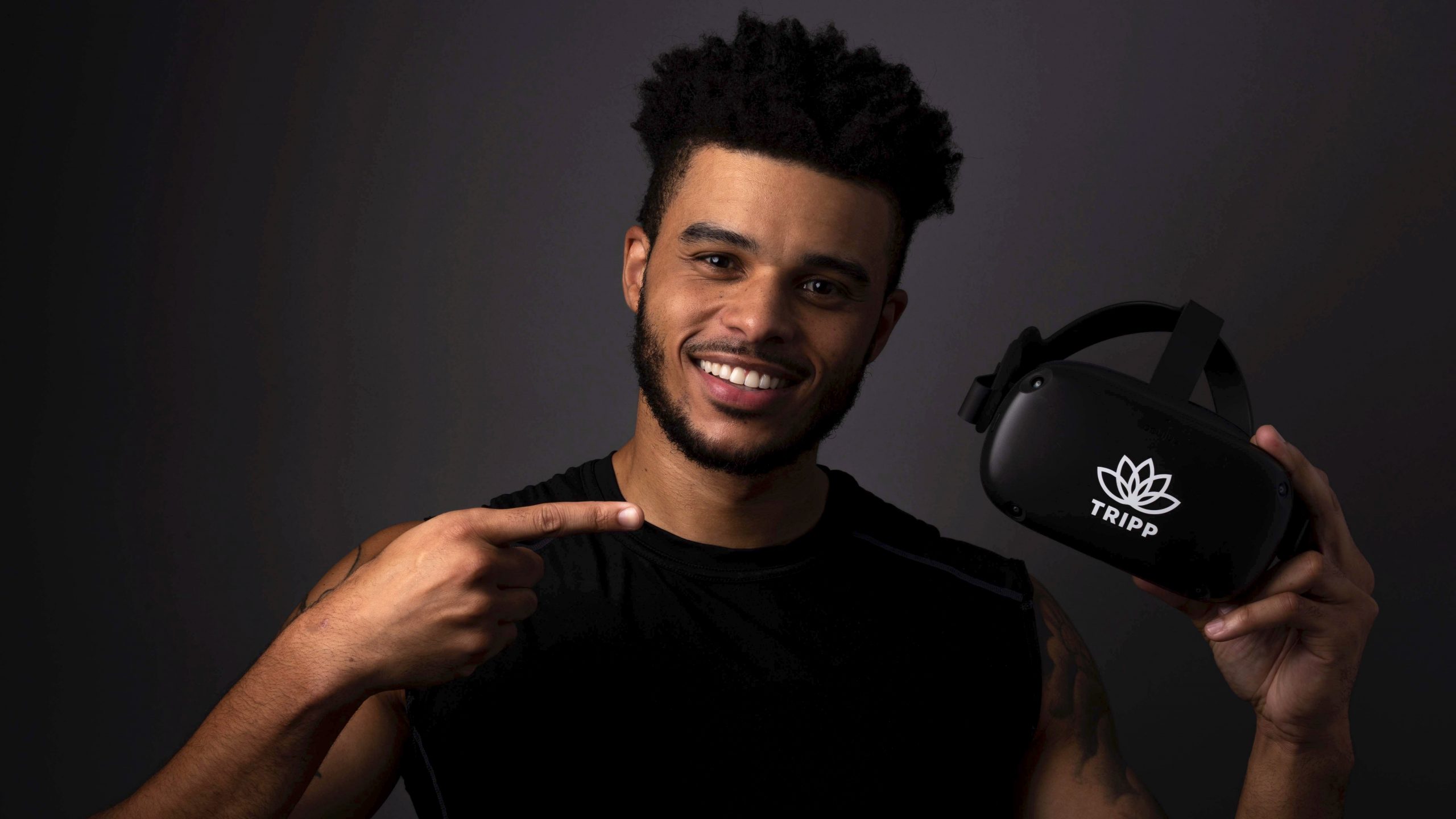VR Startup Tripp Acquires Psyassist to Develop Psychedlic Therapy Platform

Psychedelics such as LSD, mushrooms, and ayahuasca have long been studied for it’s amazing healing properties.
Founder of Tripp, Nanea Reeves, never imagined her psychedelic-inspired VR platform would one day be used by clinicians for therapeutic practices. Reeves founded Tripp four years ago and have recently acquired Psyassist with a goal to develop a VR application to support researchers and clinicians use VR for psychedelic treatment.
With a background in mobile and gaming, Nanea Reeves is an entrepreneur who realized the VR could be used far beyond entertainment. She shifted to the mental wellness space after experimenting with Oculus in the early days of VR, and she noticed very interesting effect switching in and out of alternative realities while being fully conscious.
Psychedelic drugs are still illegal most countries, despite ancient cultures have used it for healing for thousands of years. The concept of inducing a psychedelic experience without actually having to take any psychedelic drugs led Reeves to explore the potential of using VR to induce psychedelics states, activating an altered state of consciousness.
Can VR really be used for Healing?
Using VR and AR for therapeutic purpose is not something new, a number of institutions and companies such as XR Health, Oxford VR, and Psious are just a few of the companies exploring how VR can be used for healing.
Facebook Reality Labs is also exploring how to improve speech loss through brain-computer interface, and VR games studied that show reduced pain for burned patient.
What makes Tripp special is the concept of applying the field of psychedelic medicine.
Over the past four years, Tripp successfully raised over $15 million from private investors, including an $11 million round earlier this year.
The Tripp app was award “The Best VR Medication/Wellness App” by the Men’s Health Magazine. The app can help users feel more focused and calmer.
Reeves said that her company was inspired by a research conduct by Giuseppe Riva at the Università Cattolica in Milan, where they studied the power of VR inducing a state of awe.
While psychedelics are commonly associated with illegal substances such as tryptamine or phenethylamine, the concept of psychedelic can be generalized as the idea to allow a person to shift into an altered state, with or without drugs.
Reeve said
“It’s its own unique experience to be in an alternate reality while consciously, you're in your current reality,”
And it is precisely this shift of reality has been found to have amazing healing properties, with sacred medicine such as ayahuasca being used in ceremonies to treat many diseases that can’t be treated with conventional medical practices. Patients have reportedly healed from cancer and AIDS, as well as severe drug addiction and mental diseases such as depression and anxiety.
Drinking the ayahuasca tea brewed from the leaves of Psychotria viridis and the stalks of the Banisteriopsis caapi vine, and other natural ingredients, is used for spiritual purposed by ancient Amazonian tribes, which is still being practiced today in Peru, North America, Mexico, and other countries.
Psychotria viridis contains dimethyltryptamine (DMT), a psychedelic substance that is found naturally in plants. DMT is a powerful hallucinogenic chemical. In fact, every person’s brain contains this substance located in the pineal gland, which is released when we go into a dream state every night.
Tripp PsyAssist is able to illustrate the kind of hallucinogenic effect in VR, mimicking experiences such as seeing your breath as crystals or seeing your body explode like particles, inducing the effect of cosmic connectedness. Of course, this kind of hallucinogenic effect is extremely hard to duplicate in real life, but all is possible with computer graphics in virtual reality.
The acquisition of PsyAssist provides the digital tools to help patients undergo treatment, and to legitimize the therapeutic element with empirical science. PsyAssist was initially an app developed to help patients prescribed with ketamine for at-home usage without a guided therapist.
The company expects to help patients alleviate stress and anxiety before, during, and after treatment. This is an opportunity for the company to enter into a niche market for pre and post session integration for clinical or home settings.
